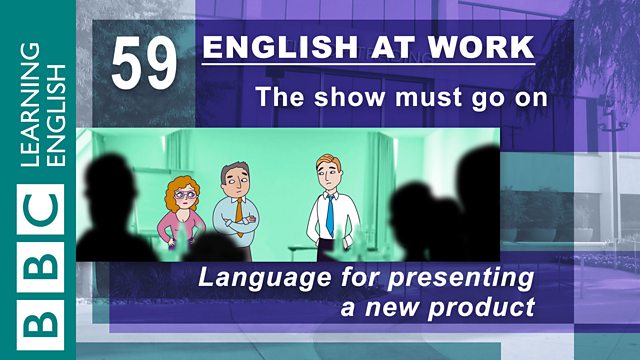BBC free online course for the intermediate level
BBC free online course for the intermediate level
This course is considered the second part of the previous course, and it is for the lower intermediate level , which serves many learners and students.

Some of the vocabulary you will learn in this course:
- Compound adjectives.
- The adjective and adverb with the subject’s name.
- Use ages and numbers with names of people.
- Complex numbers, which start from number 21 to number 99.
- Also use the adjective and adverb with the noun.
- The use of adverbs and the manner of using the participle before the noun.
- Compound adjectives consisting of three or more words.
- Compound adjectives also contain derivatives of nouns.
- Use the subject’s name after or before the adverb.
- How to use Compound adjectives consisting of three words after the noun.
Units of the course:
The first unit (using commas while writing):
It is important to know when to use these connections and when not to.
The second unit (present tense):
You will be exposed to the study the present tense of all kinds, such as the present simple tense, the present continuous tense, the present perfect tense and the rest of the times of the present tense completely.
The third unit (temporary power of stores):
You will take a test which will test what you have read and what you know about the grammar of this unit and also there will be questions until you review the current present action forms in this unit.
The fourth unit (Expressive phrases and bargaining):
The most important course video because it deals with the study of something very important, namely expressive phrases in all daily situations and bargaining in the case of buying and selling in an easy way.
Fifth unit:
In this lesson you will listen to Jamaica and this is the first episode of the story that tells about a murder story, so what you have to do is focus during this video to get to know some of the phrases used by the owners of the native language until you restore them during your speech.
Some of the rules that you will study and practice in this course:
Present simple tense:
It is used to express the things that we do regularly and it is also used for facts, habits, cosmic facts or permanent situations in which we often use some expressions in them such as now, every day once a week on Fridays once a year and so on.
Present continuous tense:
The present continuous tense is used to express things that happen at the same time that a person speaks and it is also used for some temporary situations and so on.
Present perfect tense:
It is used for four things:
- If there have been some experiences in the past and I am telling you about them.
- If a story is without time and date because we often use his word always and forever.
- The previous and last measures taken by the human being are considered among the important things.
- Past situations that occurred in the past, but still occur.



I wanna learn
I wanna learn
start
I wanna alearn
BBC course for the intermediate level – Get Forsa
[url=http://www.g57701n0v3vf30we7zsgfu32c16zq8x6s.org/]unxzxjgq[/url]
anxzxjgq
nxzxjgq http://www.g57701n0v3vf30we7zsgfu32c16zq8x6s.org/
Carbide Sheet Metal
One Time Use Charger
Bearing Seal And Race Driver Set
Car Towel Drying
Mining Crusher
Car Washing Microfibre Chenille Mitt
Hotel Luggage Trolley
ACS355-03E-12A5-4
Electric Cabin Vehicle
Hollow Soil Brick Plant
3d Printed Model Train
Products
Pink Doll House
20 Ton Swivel Hook
StellaMcCartneyステラマッカートニーバッグコピー
コピー時計
Bearing 6014
Hub Usb Audio
generic sildenafil soft tabs
China Tire Rubber Grade Zinc Oxide Powder Factory
Color Inkjet Printer Price
China Heavy Duty Mining Mud Sand Gravel Pump Factory
18 Gauge Corrugated Steel Roofing Sheet
Hydroxypropylmethylcellulose Hpmc
Wholesale High Temperature Resistant Powder Coatings
HPMC Industrial Grades Suppliers
Bamboo Veneer Surfboard
Surgilast schlauchf?rmiger elastischer Verband
Buna-N Nitril O RINGS
Repeater 2g
Direct Dye Yellow R Made in China
viagra from india pharmacy
Fashion HPMC for paint
Patient Bibs Dental
Eos Ice
security system companies
chip tags
Union For Pipe Fittings
Floating Bookshelves Factory
Harbor Freight Electric Hoist
シャネルバッグコピー品シャネルバッグスーパーコピー
FR501 thru FR507 5A Fast Recovery Diode
時計スーパーコピー
Coaxial Cable SQLA-1218B RF Amplifier – Qianjin
スーパーコピーブランドシャネルシャネル通販偽物
Emergency Reserve Food
China Carbon Neutral
Bridge Rectifier
ルイヴィトンスーパーコピーバッグ
High Temperature Thermistor Probes
HD 1080p Projector
Silver Earrings
スーパーコピーブランド専門店atcopy
4-Stationen-Multi-Fitnessstudio
iPhone Lcd And Touch Screen White 6S
スーパーコピー時計見分け方
スーパーコピーバッグ財布小物時計ベルトライター
Zero Order And True Zero Order Waveplate
alibaba china auto bumper cover mould
スーパーコピーブランド専門通販店大人気ブランドコピー
Polarizing Plate Beam Splitter
Window Shelf
Multivitamin Outdoor Food
超人気スーパーコピーブランド時計最新商品出荷
economic full face helmet plastic auto parts mould
楽天市場スーパーコピーブランドメール
Achromatic Wave Plates AWP
hdpe pipe fittings female thread elbow
鶴橋ブランドコピー新作スーパーコピー偽物激安販売専門店
Adult Male Stimulators
iPhone Hard Oled And Touch Screen XS
ブランドコピー代引き対応バッグブランドコピー
Stewed Pork Canned
Custom Soft Toys
85C Non Polarized SMD Electrolytic Capacitor
Custom Plastic Packaging
ブランドコピー激安代引き
Spicy Canned Tuna
韓国バッグスーパーコピーと韓国バッグコピー専門通販店
Clear Plastic Greenhouse
Dark Magic Dual Penis-Brown
ルイヴィトン財布コピー
Small Pocket Torch
Hoodie Sleeve Design
CAT 326-4700 Common Rail Injector Diesel Fuel Injector for C6 C6.4 Engine 320D 321D 320D 320D FM 320D GC 320D L
ルイヴィトン財布コピー激安代引き
ヴィトン財布コピー
Silicone Coated Fiberglass Fabric
Oil Filling Machine
イヴィトン財布コピー激安代引き
Wood One Shaft Shredder
Tile Span Color Roof
Double Crank Stamping Punch Press
Angular Contact Ball Bearing
ルイヴィトンコピー財布
ルイヴィトンコピー財布
Fuel Pump Valve Assembly
Water Purifier Kitchen Faucet
lyrica canada cost
diflucan online uk
medicine augmentin 1000
generic baclofen pills
buying propecia in mexico
albendazole price canada
bactrim ds 800 160 tab
where to buy synthroid online without a prescription
generic zanaflex
zestril 40 mg tablet
amoxicillin buy online us
suhagra 100 from india
diflucan 75 mg